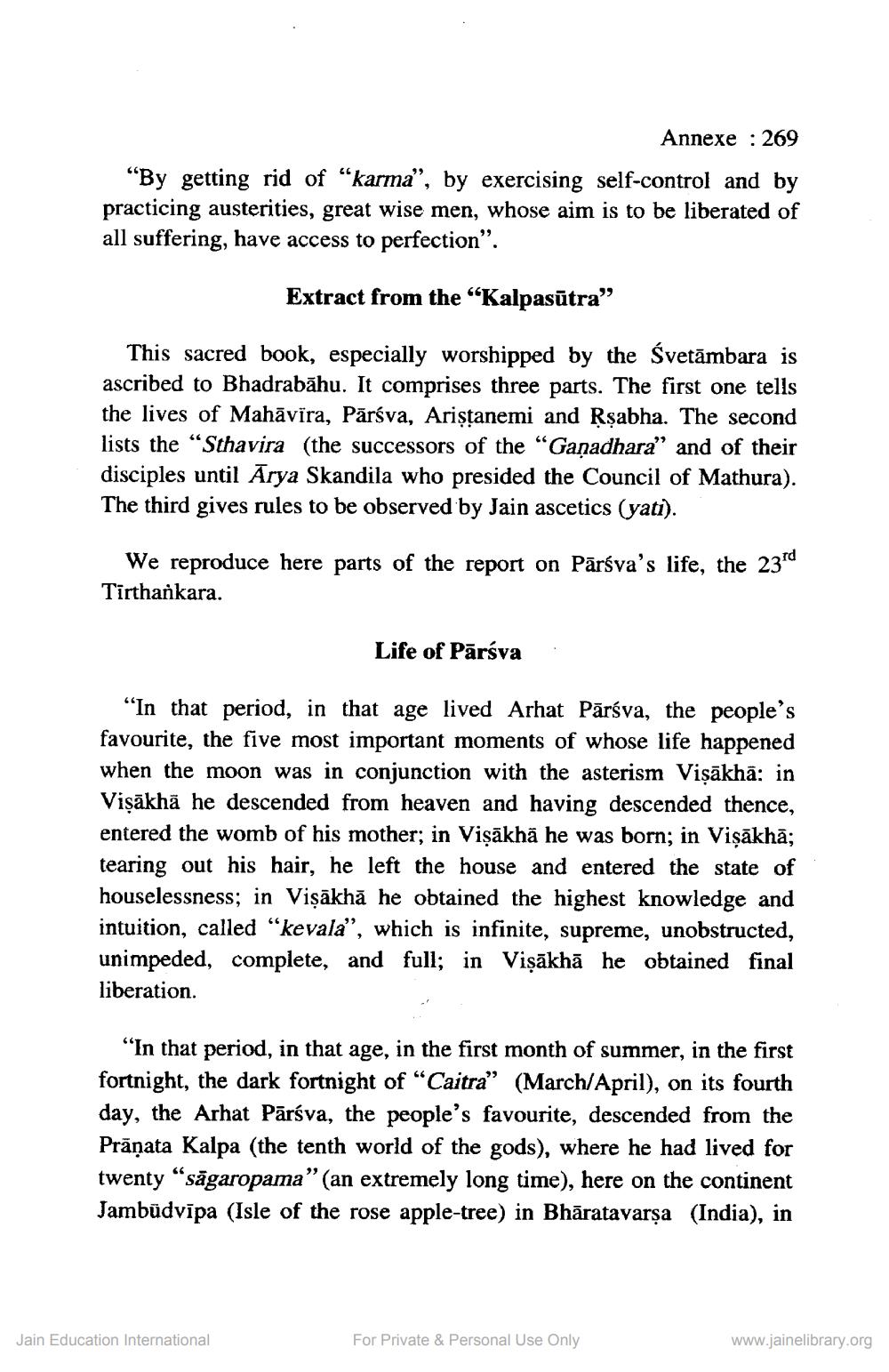________________
Annexe : 269
“By getting rid of “karma”, by exercising self-control and by practicing austerities, great wise men, whose aim is to be liberated of all suffering, have access to perfection".
Extract from the “Kalpasūtra”
This sacred book, especially worshipped by the Svetāmbara is ascribed to Bhadrabăhu. It comprises three parts. The first one tells the lives of Mahāvīra, Pārsva, Aristanemi and Rşabha. The second lists the “Sthavira (the successors of the “Ganadhara” and of their disciples until Arya Skandila who presided the Council of Mathura). The third gives rules to be observed by Jain ascetics (yati).
We reproduce here parts of the report on Pārsva's life, the 23rd Tirthankara.
Life of Pārsva
"In that period, in that age lived Arhat Pārsva, the people's favourite, the five most important moments of whose life happened when the moon was in conjunction with the asterism Vişākhā: in Vişākhä he descended from heaven and having descended thence, entered the womb of his mother; in Vişākhä he was born; in Vişākhā; tearing out his hair, he left the house and entered the state of houselessness; in Vişākhā he obtained the highest knowledge and intuition, called “kevala”, which is infinite, supreme, unobstructed, unimpeded, complete, and full; in Vişākhā he obtained final liberation.
“In that period, in that age, in the first month of summer, in the first fortnight, the dark fortnight of “Caitra” (March/April), on its fourth day, the Arhat Pārsva, the people's favourite, descended from the Prāņata Kalpa (the tenth world of the gods), where he had lived for twenty “sāgaropama” (an extremely long time), here on the continent Jambüdvīpa (Isle of the rose apple-tree) in Bhāratavarşa (India), in
Jain Education International
For Private & Personal Use Only
www.jainelibrary.org




